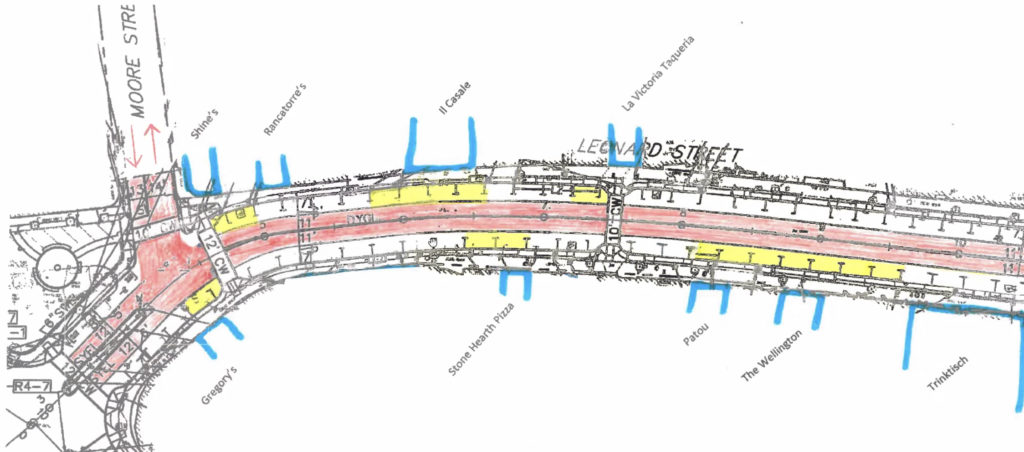Photo: Jeff Liberty
Jeff Liberty‘s background is an impressive collection of experiences in education. The Dorchester native has been classroom teacher, administrator, the inaugural leader of an in-district Boston charter school and currently works at an educational consultancy. He is running unopposed for the open seat on the Belmont School Committee. A 12 year resident of Worcester Street, Liberty matriculated at Brandeis University (History) and received his MFA in creative writing from Emerson.
Q: You have an unique background for school committee members being a multifaceted education careerist: You have been a teacher, administrator, charter school leader and now in education consultancy. How do you anticipate working and collaborating with your five fellow committee members who don’t have your practical experience in the field?
A: I do have a lot of experience and I’m happy to share it with my fellow Committee Members and members of the BPS administration. At the same time, all of the other Members bring tremendous skills and experience, including experience being on the School Committee and other elected offices, so I expect it should be very easy to collaborate with my colleagues on the Committee. I’m honored to serve with such a committed and intelligent group of humans and I expect to learn as much as I teach.
Q: You have spoken about concerns you have as a parent and resident on how much students have “lost” educationally and emotionally during the pandemic. Is it possible for individual students to “recover” that gap in classroom learning and social emotional skills or should the district take a more holistic approach of moving grades forward with supports?
A: When it comes to foundational academic skills and human development/social-emotional skills, students must be supported to recover from lost opportunities to learn and grow. Otherwise, we do not afford them the opportunity, as a generation, to achieve to their fullest potential. At the same time, the pandemic has shown us, in every facet of our lives, what is truly important. In that spirit, I don’t think it’s essential to obsess about going back and trying to “cover” every bit of content that was missed. That ship has sailed. The most important skills and content are the ones that are essential to student success at higher levels. There should be an effort to quantify and communicate, both in the aggregate and at the individual student level, where we are in terms of meeting those benchmarks and what we will commit to do to support students who have not yet reached the grade-level standards of academic performance and/or social-emotional growth. The Committee and the public will need to hear from the Superintendent and his team soon about what we have learned about students’ progress and what resources and programs are being developed and put in place to help students to accelerate their learning and personal development before the start of the next school year.
Q: Could you see anytime that you could support a return of mask mandates? Why or why not.
A: The pandemic has taught us that it is difficult to say for certain what the future holds. If the Board of Health and the School Committee determine that, by metrics we can all agree to, that the continuation of in-person instruction requires all educators and students to wear masks for a period of time, I would be open to supporting that policy for a limited period and with very clear benchmarks for when mask-wearing would be made optional again.
Q: You wrote a letter to the editor saying that you were angry – about who the school committee and district could not manage the system through COVID, how the town was unable to come up with a plan to manage the structural deficit and the pot holes on your street – but was still going to vote for the override. Are you still angry?
A: I would not describe myself as an angry person generally (I try not to be–life is too short!). At the same time, it has been very challenging as an educator and as a parent to watch our town fumble our way through policies and processes that have had a detrimental effect on students and families. That would make any reasonable person angry. I continue to see some of the same behaviors and habits that manifested themselves during the worst days of the pandemic like a lack of data-based decision making and un-rigorous assessment of the efficacy of programs and initiatives. This frustrates me but it also motivates me to make improvement in those areas a central focus of my work on the Committee in the years ahead. We can and we must do better to regain the public’s full confidence in our schools.
Q: The majority of what school committees does is deal with the everyday “mundane necessities” of a district: reviewing elementary school curriculum, professional development for teachers, hearing concerns of coaches that they are not being paid the same as their peers. What “mundane necessity” will you champion as a member of the committee and why is it important?
A: I don’t think any of the things you listed are mundane. I do think we need to prioritize the work of the Committee so we stay focused on our most important statutory responsibilities–supervising and supporting the Superintendent, creating and revising policy, overseeing the budget and ensuring it aligns with educational priorities, negotiating contracts that are fair and sustainable, and approving the program of studies. If we manage to do this–and to celebrate our successes along the way–nothing we do will be mundane.
Q: What will get you excited about coming to a school committee meeting on a cold and snowy Tuesday at 6:30 p.m.?
A: In the 12 years our family has lived in Belmont, I’ve met hundreds of wonderful young people and their parents and caregivers. I am highly motivated to bring purposeful, transparent, and ethical leadership to my work on the Committee on behalf of my fellow Belmontians, no matter what the weather might be. To me, public schools are just about as sacred as secular institutions can be. When they are good, they are the best examples of excellent civic life and hope for our future that we have. Who wouldn’t want to be a part of that?

